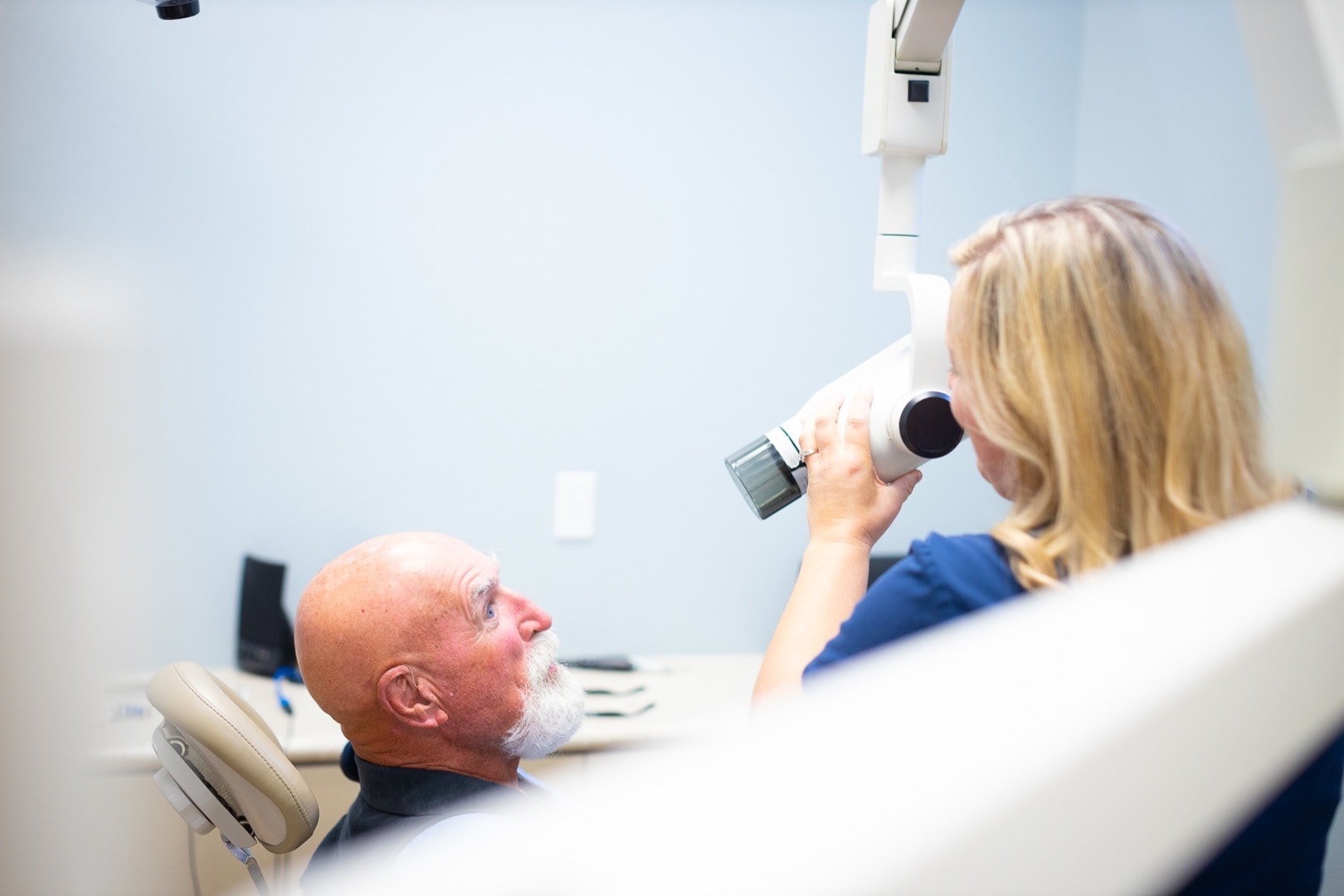Does your jaw pop when you chew? Does it feel sore after chewing for a long time or eating hard foods like tortilla chips, candy, or nuts? Do you have frequent head or neck pain? If the answer to any of these is “yes,” you may have something called temporomandibular joint disorder, or TMJ disorder. If left untreated, TMJ disorder can get progressively worse.
TMJ Disorder may be more common than you think. Causes can range from genetics to poor oral habits like crunching ice or grinding your teeth. How do you find out if you have TMJ Disorder, and what can be done to treat it? Beavers & Broomfield Family Dentistry has the answers!

What Is TMJ Disorder?
TMJ Disorder often referred to as “TMJ,” is the inflammation and degradation of the joint that connects your lower jaw to the rest of your skull. The temporomandibular joint is on either side of your face, just in front of your ears.
Symptoms of TMJ Disorder
Symptoms of TMJ Disorder start subtly and build over time. You also tend to get more symptoms the longer you go without treatment. That’s because the longer it is left untreated, the more the joint wears down.
Here are some of the symptoms of TMJ Disorder:
- Headache
- Jaw pain
- Neck pain
- Popping while chewing
- Fatigue after chewing
- Tightening or stiffness
- Locked jaw
If you’re experiencing any of these symptoms, see us at Beavers & Broomfield Family Dentistry. We can examine you and determine whether you have TMJ Disorder and how advanced it may be. From there, we’ll be able to offer suggestions on the best way to treat TMJ Disorder.

Relieving TMJ Disorder Pain
There are several ways to relieve TMJ pain, but the chances of success increase the sooner the problem is addressed. If you wait too long, the joint may wear down too much, and only surgery will be able to repair the problem.
Often, Beavers & Broomfield Family Dentistry can recommend a mouthguard to prevent tooth grinding and jaw clenching, particularly when you sleep. These two things put excess pressure on the joint, and that pressure inflames the ligaments and muscles around it. That causes the jaw to work in a different way from which it was designed, which wears the joint down. Relieving that extra pressure can stop the joint from deteriorating and relieve your pain. We can also recommend stress-relief techniques to prevent you from tensing or clenching your jaw.
If necessary, we may recommend you visit an orthodontist. Often, treatment with braces or clear aligners can realign your bite and reduce the pressure on your jaw. We may recommend orthodontic treatment if mouthguards and other techniques fail to improve your TMJ.

At-Home Methods for Improving Your TMJ
There are ways you can reduce your TMJ pain at home until you can visit us. If your jaw is hurting, try icing the joint with an ice pack for a few minutes each day to reduce the inflammation. Don’t chew on objects other than food, such as fingernails, pens, pencils, or your hair. Don’t chew gum while your jaw is inflamed. Avoid hard foods like tortilla chips, ice, or hard candies.
Try exercises to build up your jaw and reduce your pain. Try relaxing your jaw while your tongue touches the roof of your mouth. Another exercise is to place your fingers on each joint while slowly opening and closing your mouth so the jaw stays aligned as it moves. You can also try massaging the joint to relieve pain.
If your pain persists, come see Beavers & Broomfield Family Dentistry if you’re in Northwest Arkansas. Visit our Fayetteville office by requesting an appointment. Let us know if you’re having jaw pain. We’ll bring you in for an evaluation and let you know what we can do for you. You don’t have to live with jaw pain. Let Beavers & Broomfield Family Dentistry help!





